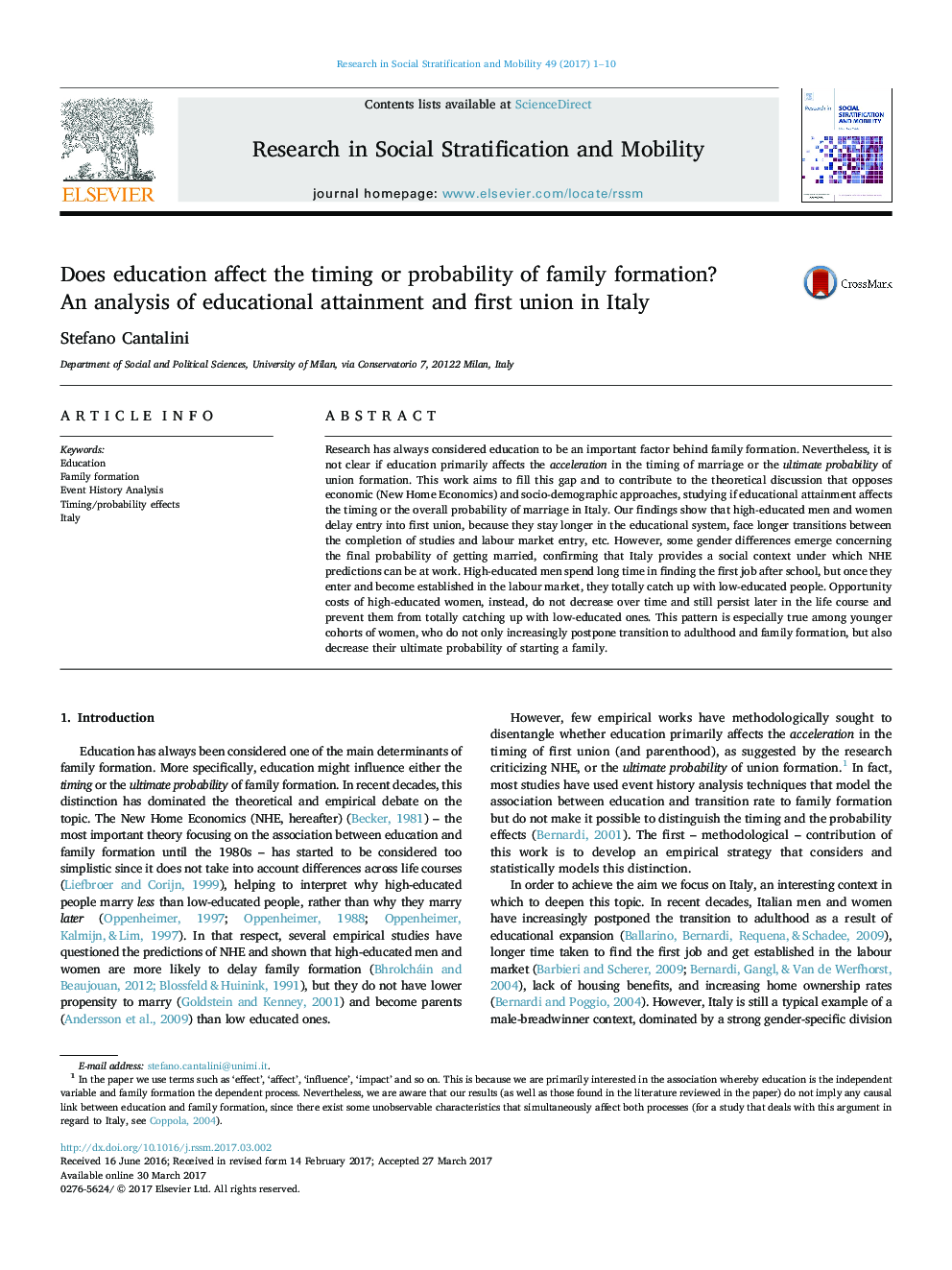| Article ID | Journal | Published Year | Pages | File Type |
|---|---|---|---|---|
| 5106629 | Research in Social Stratification and Mobility | 2017 | 10 Pages |
Abstract
Research has always considered education to be an important factor behind family formation. Nevertheless, it is not clear if education primarily affects the acceleration in the timing of marriage or the ultimate probability of union formation. This work aims to fill this gap and to contribute to the theoretical discussion that opposes economic (New Home Economics) and socio-demographic approaches, studying if educational attainment affects the timing or the overall probability of marriage in Italy. Our findings show that high-educated men and women delay entry into first union, because they stay longer in the educational system, face longer transitions between the completion of studies and labour market entry, etc. However, some gender differences emerge concerning the final probability of getting married, confirming that Italy provides a social context under which NHE predictions can be at work. High-educated men spend long time in finding the first job after school, but once they enter and become established in the labour market, they totally catch up with low-educated people. Opportunity costs of high-educated women, instead, do not decrease over time and still persist later in the life course and prevent them from totally catching up with low-educated ones. This pattern is especially true among younger cohorts of women, who do not only increasingly postpone transition to adulthood and family formation, but also decrease their ultimate probability of starting a family.
Related Topics
Social Sciences and Humanities
Economics, Econometrics and Finance
Economics, Econometrics and Finance (General)
Authors
Stefano Cantalini,
